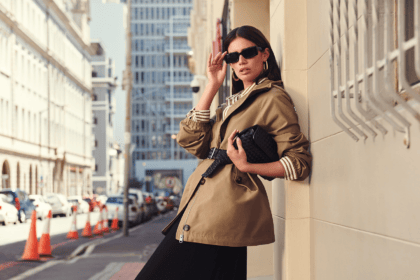The second-hand apparel market is experiencing exponential growth, propelled by sustainability and affordability. In 2023, the resale industry has attracted a burgeoning consumer base, with many shoppers opting for pre-loved items over the newly minted. The overarching trend in the second-hand market shows a high engagement level from younger demographics, mainly Gen Z and Millennials. These groups are crucial drivers of the movement towards sustainable and ethical consumption.
High-income earners also participate significantly, especially in platforms dealing with luxury and designer items. According to a Statista report on brand awareness among leading second-hand apparel online shops in the United States, the top 14 platforms are ranked by their recognition scores, along with a breakdown of the items they specialize in and their target demographics.
Leading second-hand apparel online shops ranked by brand awareness (U.S.)

During the survey, the question was phrased as follows: “Do you know this brand, even if only by name? If you know the brand, please swipe right. If you do not know the brand, swipe left.”
1. Goodwill
Brand Awareness: 69%
Goodwill is a brick-and-mortar staple and an online juggernaut in the second-hand market. Specializing in a broad spectrum of apparel, Goodwill offers everything from casual wear to work attire. Their diverse inventory appeals to a wide range of demographics, but they mainly attract the value-conscious shopper who appreciates sustainable choices.
2. Urban Outfitters
Brand Awareness: 67%
Urban Outfitters, known for its trendy, youthful vibe, has successfully transitioned its brand into the resale market. They predominantly offer vintage and retro-inspired clothing, catering mainly to a younger demographic—specifically, Millennials and Gen Z, deeply engaged with current fashion trends and sustainable shopping habits.
3. Poshmark
Brand Awareness: 64%
Poshmark is a social resale platform where users can buy and sell clothing, footwear, and accessories. The platform has gained popularity for its user-friendly interface and active community. High-demand items include branded sneakers, vintage T-shirts, and designer jackets, appealing mainly to fashion-forward Millennials and high-income earners.
4. thredUP
Brand Awareness: 47%
thredUP is one of the largest online consignment stores and offers a vast inventory of women’s and children’s clothes. Their business model focuses on high-quality, gently used items from over 35,000 brands, including everything from Gap to Gucci. thredUP appeals predominantly to environmentally conscientious consumers and thrifty parents.
5. The RealReal
Brand Awareness: 38%
Specializing in luxury resale, The RealReal curates an extensive second-hand designer apparel, accessories, and jewelry collection. They perform rigorous authentication processes, which resonate with high-income earners who seek premium brands at a fraction of the original price.
6. Depop
Brand Awareness: 33%
Depop functions as a mobile marketplace for trendy and unique fashion items. It has become a haven for Gen Z and Millennials who enjoy discovering vintage gems and rare streetwear. The platform’s interface mimics social media feeds, which makes it particularly appealing to younger users who prefer a more interactive shopping experience.
7. swap.com
Brand Awareness: 31%
swap.com has carved a niche by specializing in pre-loved children’s clothing, maternity wear, and baby gear. They target cost-conscious parents who are looking for quality items at affordable prices while maintaining a sustainable lifestyle.
8. Goodfair
Brand Awareness: 30%
Goodfair offers themed bundles of pre-owned clothing, simplifying the thrifting process for consumers who are unsure where to start but are eager to embrace sustainability. They predominantly attract millennials who appreciate their purchases’ surprise element and value-driven curation.
9. FARFETCH
Brand Awareness: 28%
Known for its upscale offerings, FARFETCH delves into the resale market, providing a curated selection of luxury and designer pieces. Their clientele consists primarily of high-income earners who seek exclusive, high-end items without the premium price tags associated with new purchases.
10. Luxury Garage Sale
Brand Awareness: 28%
Luxury Garage Sale focuses on gently used designer pieces, including shoes, handbags, and accessories. The brand successfully attracts fashion enthusiasts and luxury shoppers who want to indulge in opulence without splurging excessively.
11. refashioner
Brand Awareness: 28%
Refashioner promotes the concept of “storytelling through clothes,” where each piece comes with a narrative. This unique approach appeals to consumers who cherish personal history and character in their fashion choices and are eco-conscious.
12. Beyond Retro
Brand Awareness: 27%
Beyond Retro offers a curated selection of vintage clothing and accessories, appealing primarily to fashion-savvy individuals who relish the nostalgia of past fashion eras. Their audience typically includes Millennials and Gen Z who value authenticity and sustainable practices.
13. Tradesy
Brand Awareness: 27%
Tradesy specializes in high-end designer clothing and accessories. They have built a loyal following among fashion-conscious shoppers looking for authenticated luxury items. Their target demographic often includes older Millennials and Gen X consumers with disposable income and a penchant for luxury.
14. Fashionphile
Brand Awareness: 26%
Fashionphile is renowned for its extensive collection of second-hand luxury handbags and accessories. They attract affluent shoppers who are brand loyalists and appreciate the opportunity to purchase premier items at reduced prices.
Final Thoughts
The second-hand apparel market in the United States continues to expand, driven by economic considerations, sustainability, and fashion trends. From affordable everyday wear to luxury designer pieces, the array of options available through these top 14 platforms provides something for every consumer.

















